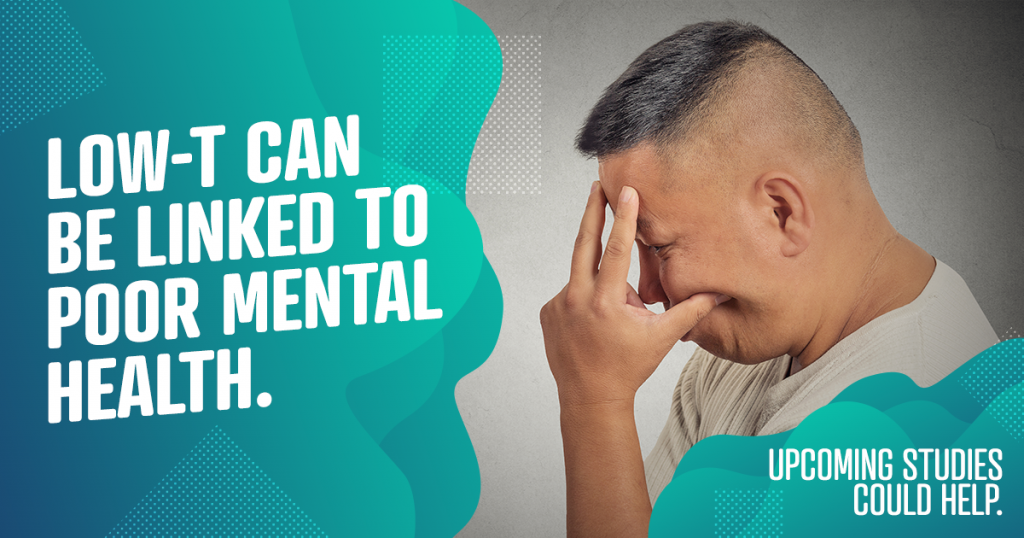Approximately 2 in every 100 men have low testosterone, or Low T. The symptoms associated with it are often attributed to getting older. Although some men never experience any symptoms, medical attention should still be sought. June is Men’s Health Month. It’s purpose is to encourage men to take care of their bodies by living a healthier life and bringing awareness to medical conditions specific to them, like Low T. Never heard of Low T? Don’t worry! We’ll go over some basic facts in this blog, and why this is the perfect month to learn about it!
What Low T Means for Men
Testosterone is a hormone that helps men maintain bone density, fat distribution, facial and body hair, muscle strength and mass, and sex drive. Production of it peaks through early adulthood, then gradually begins to decrease after the age of 30-40. Common symptoms of Low T are:
- Decreased Sex Drive
- Erectile Dysfunction
- Decrease in Motivation and Self Confidence
- Fatigue
- Reduced Bone Mass
- Reduction of Muscle Mass and Strength
Factors such as diabetes, medication side effects, obstructive sleep apnea, and thyroid issues may also present with these same symptoms. It is also possible these may cause Low T, so talk to your doctor about any symptoms you may be experiencing. Low T is treatable, and most men benefit from testosterone therapy, or TT, or other options.
Men’s Health Month
This month is all about adopting a healthier lifestyle, learning more about preventable diseases, and seeking medical guidance for any issues concerning you. By doing so, you also cultivate the same lifestyle in your family for generations to come. There are many ways to participate. A listing of activities for Men’s Health Month can be found here. So, gather the men in your life, including your friends, and get involved today!
Men’s Health Month also generates vital funding towards the research of medical conditions that affect males, like Low T. Through clinical research studies, we learn more about conditions that affect men and find better ways of diagnosing and managing them, which may ultimately lead to finding cures. Men, like yourself, participating in these studies make this possible.

To learn more about the upcoming Low T studies at Endeavor Clinical Trials, call (210) 949-0807, or click here.
References:
https://www.medicalnewstoday.com/articles/322647#when-to-see-a-doctor





